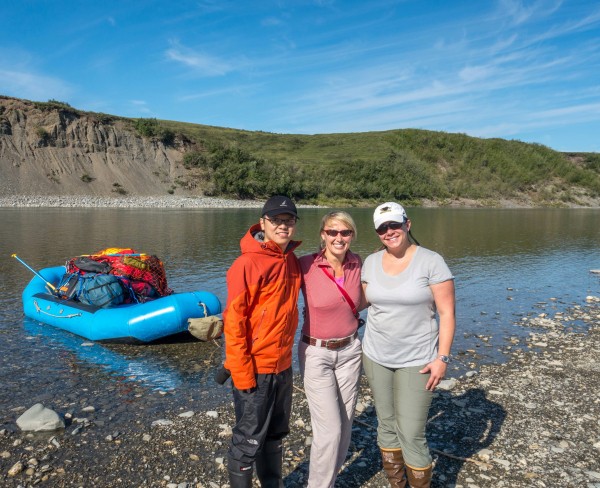New Study Links Wildfires to Vegetation Changes in Alaskan Arctic Tundra
Research by GEOG researchers documents the complex relationship between fire and shrubification in the Arctic.
Shrubs are a common scenario of the Alaskan Arctic Tundra, though not in the same abundance as we see today. Between 2016 and 2018, now GEOG Associate Research Professor Dong (Tony) Chen, among a team guided by Professor and Chair Tatiana Loboda, spent their summers in the Alaskan tundra, focusing more on collecting data than on any specific greening trend. At the time, they weren’t expecting to uncover much beyond their ongoing fieldwork. But over time, their data revealed something unexpected—a clear trend of increased vegetation, particularly shrubs, in the region. This trend would later form the basis of their research, published in Nature Plants, shedding light on the feedback loops between fire and greening in the Arctic.
Led by Dong (Tony) Chen, with co-authors from GEOG and others, the paper titled “Regional Fire–Greening Positive Feedback Loops in Alaskan Arctic Tundra” examines the role wildfires play in reshaping the vegetation of the Arctic. The study, funded by NASA's Terrestrial Ecology Program’s Arctic-Boreal Vulnerability Experiment (ABoVE), combines fieldwork in Alaska and extensive data analysis to reveal the complex dynamics between wildfires and the rapid greening of the tundra.
The research highlights a feedback loop in which wildfires—particularly those of higher severity—can promote the growth of deciduous shrubs and other plants, contributing to the phenomenon known as shrubification. However, these fire–greening interactions vary across different subregions of the tundra, shaped by local climate, vegetation and geophysical conditions.
“Wildfires in the Arctic are becoming more frequent and intense, and understanding how these fires contribute to changes in vegetation is crucial for predicting how the landscape will continue to evolve,” said Chen. “Our study shows that fire is not just a destructive force but a key driver in the greening of the Arctic, with significant implications for the region’s future.”
In addition to the main paper, an accompanying article titled “Wildfires Accelerate Shrubification in the Alaskan Arctic Tundra” was also published, further examining how wildfires are driving the expansion of shrubs in the region.
“Regional Fire–Greening Positive Feedback Loops in Alaskan Arctic Tundra”
Dong Chen, Cheng Fu, Liza K. Jenkins, Jiaying He, Zhihao Wang, Randi R. Jandt, Gerald V. Frost, Allison Bredder, Logan T. Berner & Tatiana V. Loboda. Regional fire–greening positive feedback loops in Alaskan Arctic tundra. Nat. Plants 10, 1886–1891 (2024). https://doi.org/10.1038/s41477-024-01850-5
Main image: Dong (Tony) Chen, Tatiana Loboda and Lize Jenkins from Michigan Technological University during fieldwork in July 2016 on the Noatak River, Alaska.
Published on Fri, 01/10/2025 - 14:45


